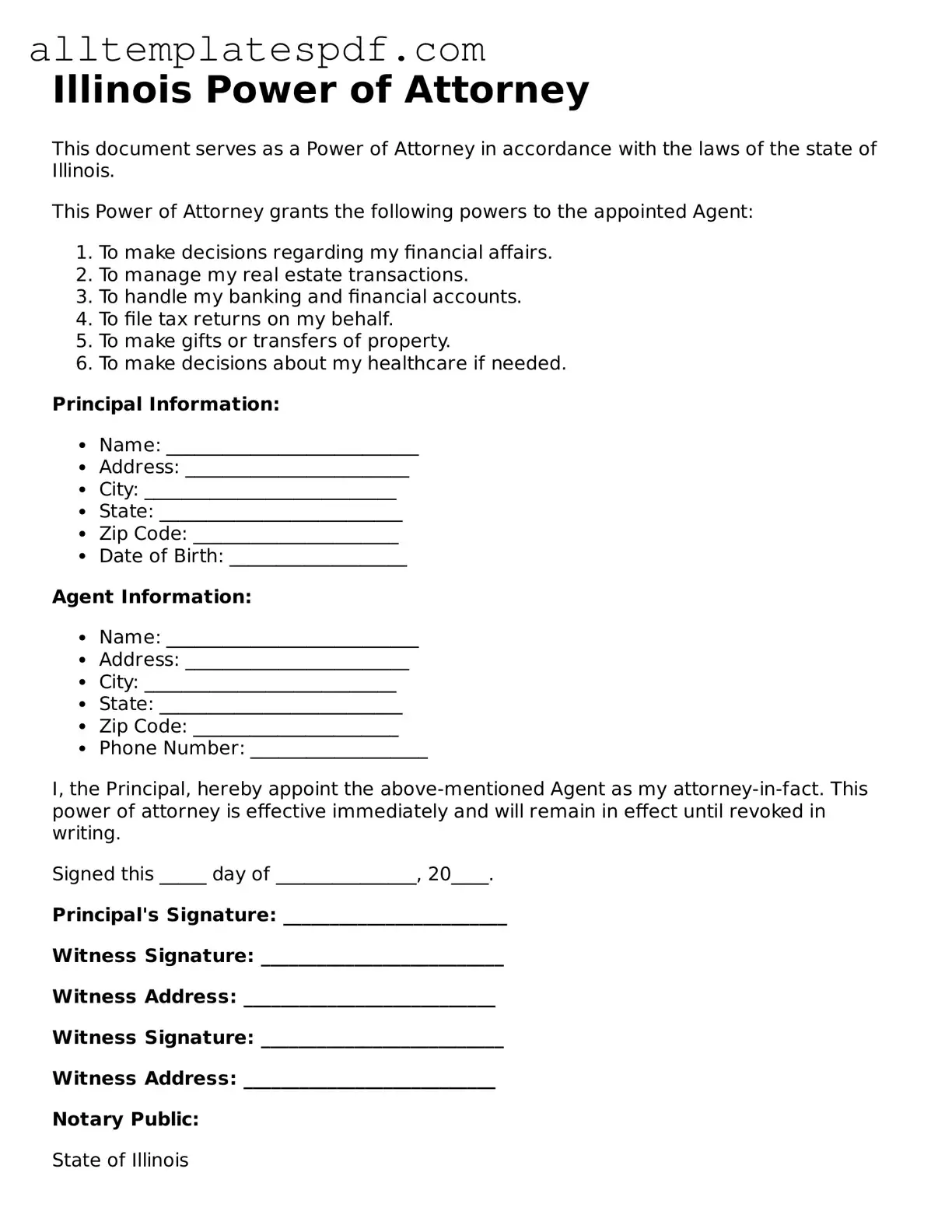Completing the Illinois Power of Attorney form is a significant step in ensuring that one's personal and financial affairs are managed according to individual preferences. However, individuals often make mistakes that can lead to complications or invalidation of the document. One common error is failing to clearly identify the principal and agent. The form requires specific names and addresses. Omitting this information or using vague terms can create confusion about who holds authority.
Another frequent mistake involves the selection of the agent. Individuals sometimes appoint someone without considering their suitability for the role. An agent should be trustworthy and capable of making informed decisions on behalf of the principal. Additionally, failing to discuss the responsibilities with the chosen agent can lead to misunderstandings about expectations and authority.
People often overlook the need for witnesses or notarization. In Illinois, certain types of Power of Attorney forms must be signed in the presence of a witness or a notary public. Neglecting this requirement can render the document invalid. It is crucial to ensure that all signatures are properly executed to uphold the document's legality.
Another mistake relates to the scope of authority granted to the agent. Some individuals may not specify the powers they wish to confer, leading to ambiguity. Clearly outlining the powers—whether they are broad or limited—can prevent future disputes and ensure that the agent acts in alignment with the principal's wishes.
Additionally, individuals may fail to update the Power of Attorney form as circumstances change. Life events such as marriage, divorce, or the death of an agent can affect the validity of the document. Regular reviews and updates are essential to maintain its relevance and effectiveness.
People sometimes neglect to consider alternate agents. In the event that the primary agent is unable or unwilling to serve, having a backup can ensure continuity in decision-making. This precaution helps avoid delays and confusion regarding who should step in when necessary.
Finally, individuals may not fully understand the implications of granting Power of Attorney. It is important to recognize that this authority can significantly impact one’s life and finances. Consulting with a legal professional can provide clarity and ensure that the form is completed accurately and in accordance with personal intentions.

